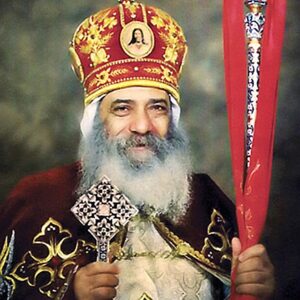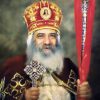I want to focus particularly on one phrase that is said often about monks which is that they are “earthly angels”. This simply means that every monk is an angel. So what does the word angel mean and why is a monk compared to an angel. The 1st thing about an angel is that he …
 I want to focus particularly on one phrase that is said often about monks which is that they are “earthly angels”. This simply means that every monk is an angel. So what does the word angel mean and why is a monk compared to an angel.
I want to focus particularly on one phrase that is said often about monks which is that they are “earthly angels”. This simply means that every monk is an angel. So what does the word angel mean and why is a monk compared to an angel.
The 1st thing about an angel is that he is a spiritual creation or spirit, in fact more spirit than spiritual. David the psalmist says “Who makes his angels spirits, His ministers a flame of fire” (Psalm 104:4). So if we take the monk as angel he must live like a spirit, far away from the body and its carnal desires.
So how does the monk live like an angel?
Simply it is the refusal of all the carnal pleasures of the body and the refusal of any physical pleasure. St Macarius of Alexandria, when he visited the monasteries of St Pachomious father of community took a very strict fast upon himself to the extent that the fellow monks became troubled and went to St Pachomious telling him that St Macarius had no Body and did not live in a way that showed that he had a body. It’s documented that St Macarius would eat once a week only. My friends the angels don’t eat! The more a man abstains from food the more his spirit has a chance to flourish and grow. Fr. Abd el-massih el Habishy from memory used to look and walk in the deserts like a gazelle, he was light and fast on his feet.
Further the monk is an angel in the sense that they deprive their body from sleep and don’t give it the chance to rest. The Lord says “The spirit is willing but the body is weak”. We even see that the church in its wisdom helps the monk in this by placing the midnight prayer and its three services as well as the Tasbeha as meaningful tools to stay awake. In-fact one can assume that the monk who doesn’t attend these prayers is sleeping, which means he is giving the body rest which isn’t the monastic way, unless of course the monk has a spiritual plan with his confession father.
The monks that stay up all night praying are definitely symbolic of the angels, but the monk who sleeps falls under the power of the body allowing it to conquer him in food, rest, purity and chastity. This definitely is not the monastic way.
The angelic monk is the one who works his body in such a way that he can do no more. The ancient fathers used to crucify their bodies as we see in the Paradise of the Fathers. We can take for example St Symeon or Luke the Stylite who used to live on a pillar and torture their body in ways that are unimaginable. The angelic monk’s body becomes a slave to him and to his spirit. This is what it means to be an angel; it means to be a spirit, living like a spirit. It is important that each one of us ask themselves whether or not they are living in a way that makes their body rise over their spirit.
A great saint who really exhausted his body was St Paul of Tamouh, who from the amount of labour he used to do, he was visited by Christ himself who said, “Enough toil my beloved Paul” to which St Paul of Tamouh replied “the toil that I go through is nothing compared to the pain which you go through for me”. It would be wonderful if we could study the fathers and see how they struggled against the desires of the body.
In fact St John the short was once asked, “What is Monasticism?” to which he replied “it is struggle”. However the fathers who were more compassionate used to say that it was struggling according to your capabilities.
So let us ask ourselves in everything we do. If I was an angel would the angel do what I am doing? Or does my guardian angel get embarrassed and ashamed of my actions?
Join Us: Sign Up Today!











